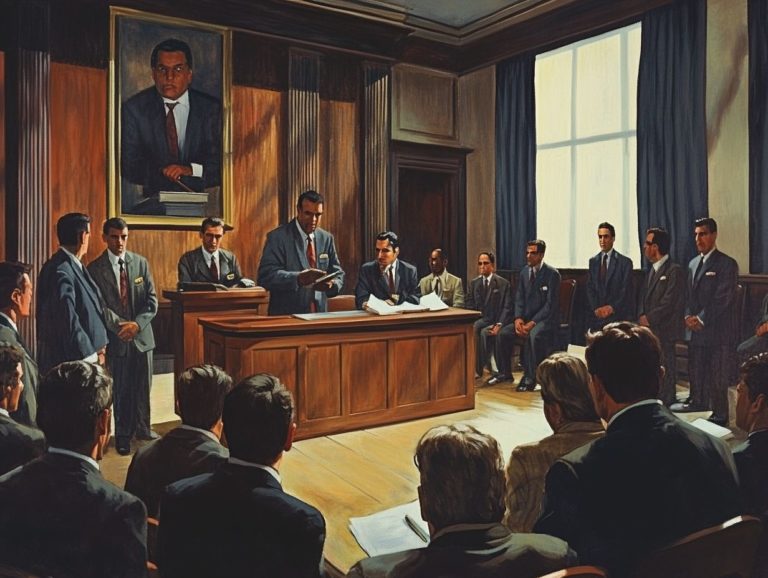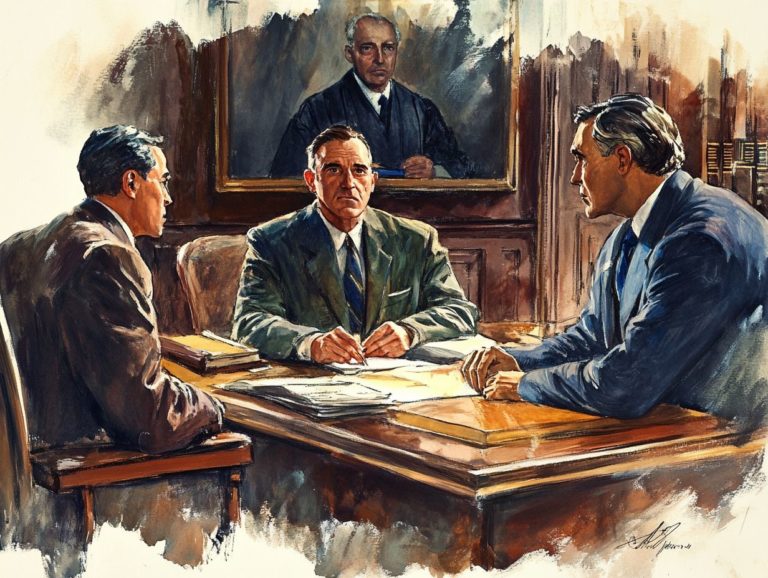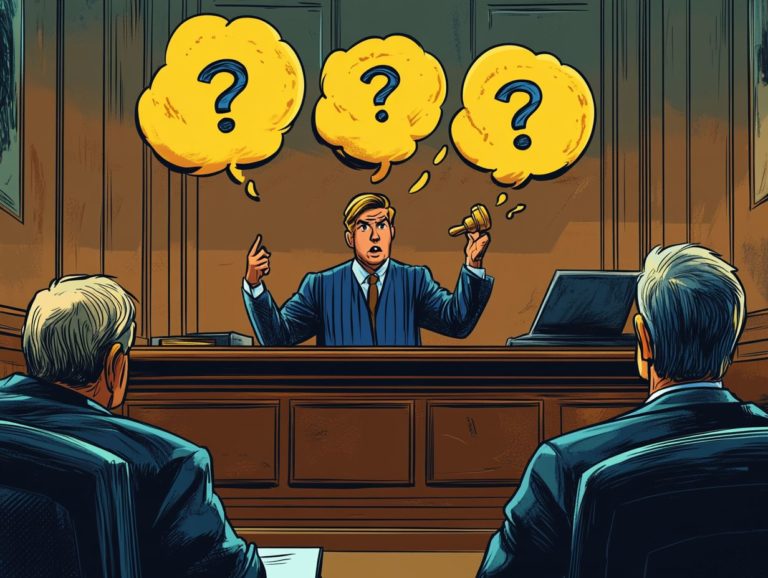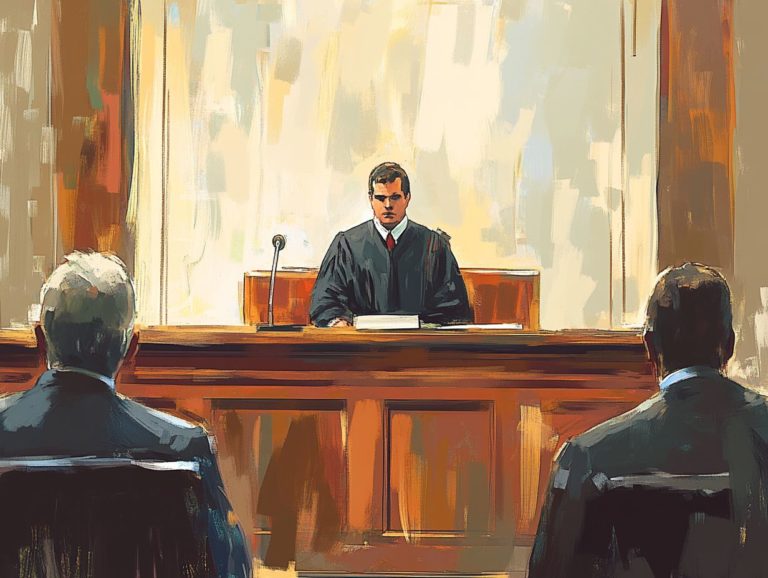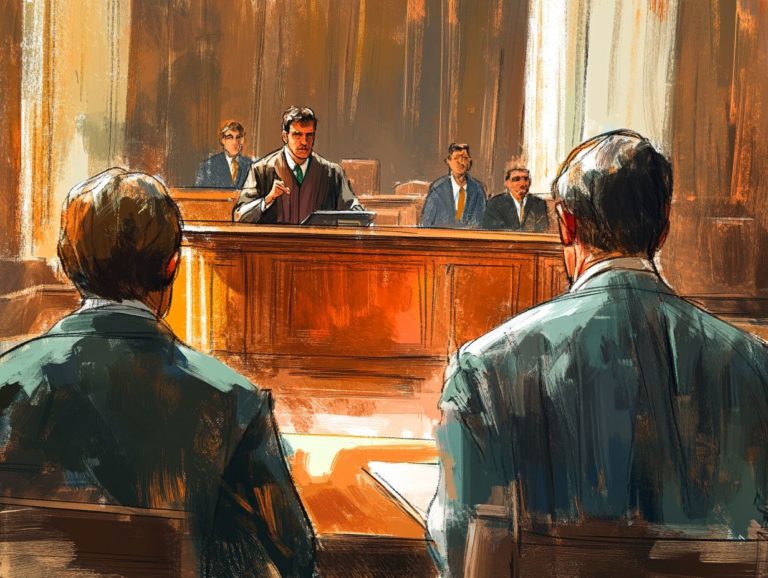The Influence of Cultural Factors on Defense
Cultural factors significantly shape defense strategies, often steering decisions and outcomes in unexpected ways.
This article explores the impact of culture on military operations. Historical examples illuminate valuable lessons from past conflicts and examine contemporary cultural dynamics in modern warfare.
It also presents effective strategies for enhancing cultural sensitivity within defense practices.
Additionally, it anticipates how evolving cultural landscapes could influence future defense approaches. Join us as we explore the intricate relationship between culture and defense, revealing insights that could redefine one s understanding of military strategy.
Contents
Key Takeaways:
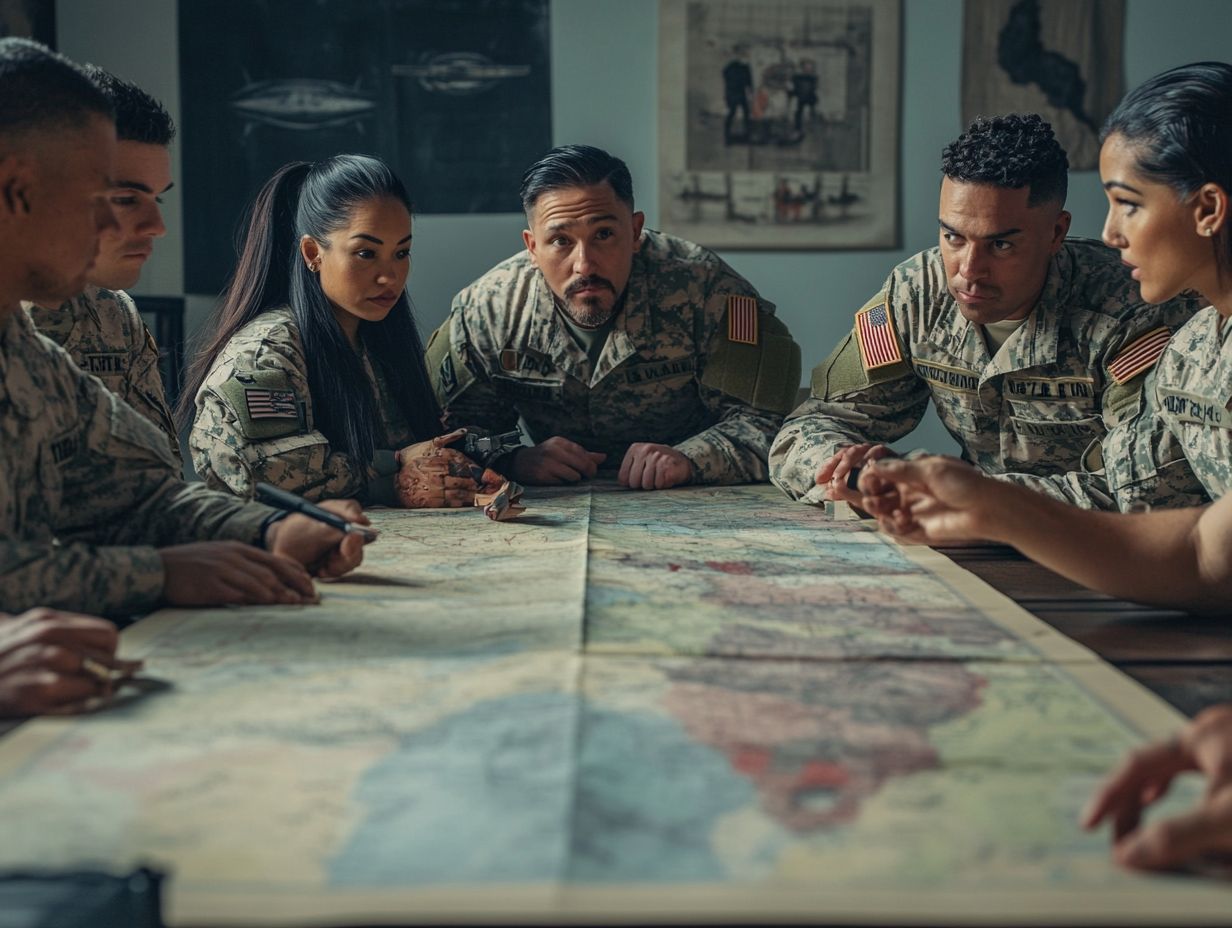
Cultural factors can greatly impact defense strategies and tactics, making it essential to understand their influence. Historical examples offer valuable lessons for addressing cultural factors in defense. Modern warfare is heavily influenced by culture, and being culturally sensitive is crucial for successful operations.
Cultural Factors in Defense
Cultural factors significantly shape one s understanding of defense strategies within the criminal justice system. They impact not only individual responsibility but also the broader legal framework that dictates how laws are applied across various ethnic groups.
This intricate dance between cultural defense and existing legal doctrines illuminates the complexities of cultural pluralism, which refers to the coexistence of diverse cultures within a society.
The legal challenges stemming from these cultural differences raise important questions about fair representation and equitable treatment in criminal proceedings.
This shows why understanding one s cultural background is crucial for shaping effective legal strategies and sentencing outcomes.
Understanding the Impact of Culture
To understand culture s impact, explore how it shapes actions and moral standards, as well as the legal arguments that emerge during criminal proceedings.
This exploration often uncovers the subtle nuances of cultural reasoning, especially in defense strategies that aim to align legal outcomes with community beliefs and traditions.
When facing legal challenges, one s cultural heritage can significantly influence not only personal narratives but also how juries interpret motivations and behaviors.
Different cultural backgrounds can lead to diverse interpretations of justice, shaping community standards and potentially reshaping legal precedents.
Therefore, grasping the intricate relationship between culture and law is essential for a thorough understanding of today s legal dynamics.
Historical Examples of Cultural Influence on Defense
Historical examples of cultural influence on defense reveal the profound impact that cultural defenses have had in shaping legal outcomes for ethnic minorities, especially in contexts dominated by majoritarian law.
These cases illustrate how traditional defenses can be enriched with cultural evidence, showcasing the intricacies of incorporating cultural factors into legal strategies.
By examining pivotal legal cases, one gains a deeper understanding of how the legal system has reacted to claims shaped by cultural backgrounds, equipping oneself with valuable insights for future legal arguments.
Lessons Learned from Past Conflicts
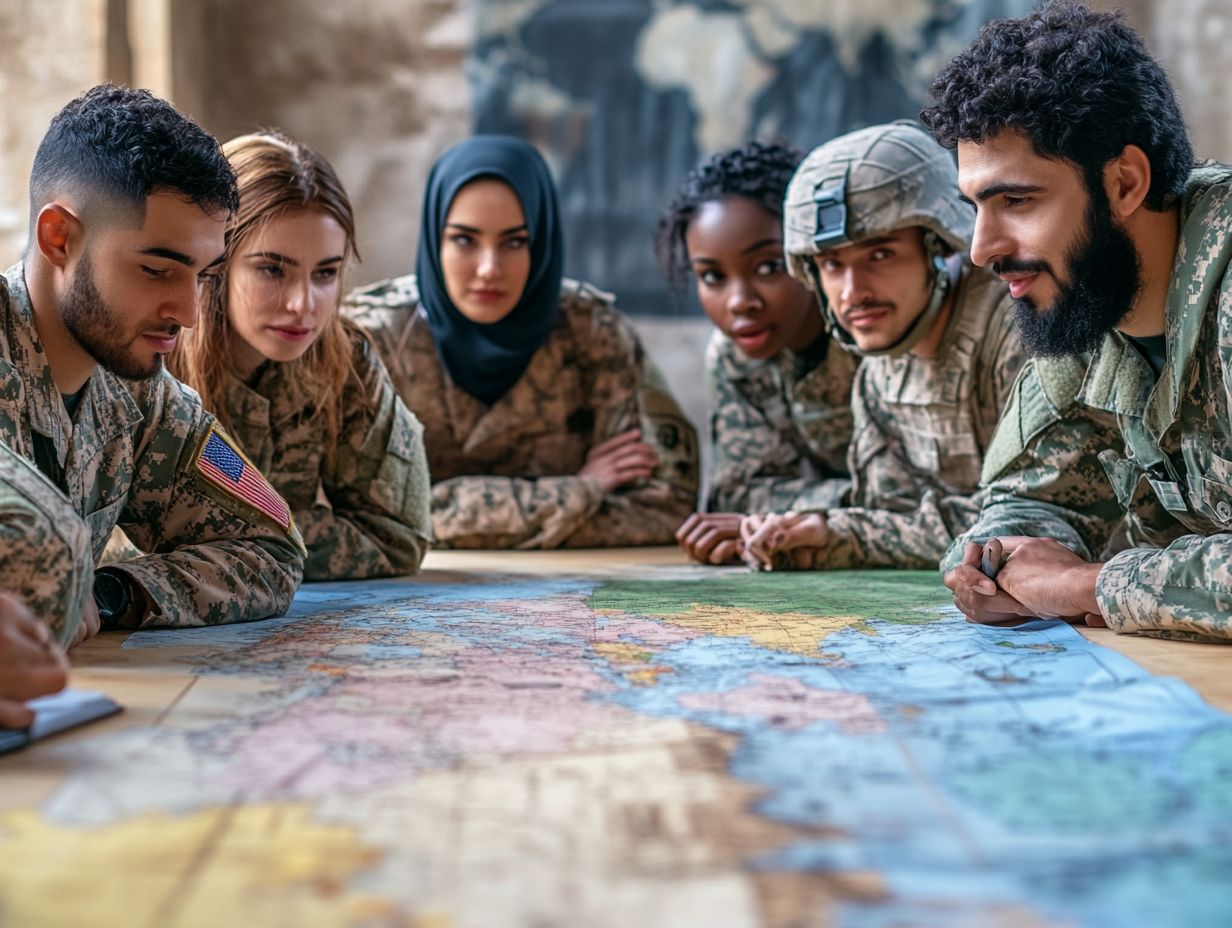
Lessons learned from past conflicts reveal essential insights into the legal concerns that arise when cultural expectations collide with established criminal law, particularly regarding ethnic groups and individual accountability.
Consider events like the Indian Rebellion of 1857 and the Zapatista Uprising in Mexico. These moments highlight the struggles between authority and marginalized populations. They also illustrate how such clashes have shaped contemporary legal systems.
Examining the repercussions of these disputes shows how they have evolved legal practices. These practices aim to address complexities in cultural conflicts.
This evolution calls for careful reevaluation of existing laws, especially as future cases may challenge the intersections between cultural norms and legal accountability.
Current Cultural Factors in Defense
Current cultural factors in defense play a crucial role in shaping legal systems and community standards. They affect how public institutions manage criminal proceedings with cultural sensitivity.
As calls for cultural tolerance and understanding grow, legal systems are evolving to embrace the cultural nuances influencing defense strategies. This transformation underscores the recognition of the necessity to weave cultural contexts into the justice process. It guarantees equitable treatment for defendants from diverse backgrounds.
The Role of Culture in Modern Warfare
The role of culture in modern warfare reveals how profoundly cultural expectations shape the legal strategies in conflicts involving ethnic minorities. As you navigate this interplay, you will find deep connections between cultural identity and warfare. These connections impact the involved communities and influence international laws.
Legal representatives must be attuned to the cultural narratives that communities uphold. These stories often dictate responses to conflict and shape expectations of justice. This makes legal strategies complicated.
Successful advocacy hinges on understanding the cultural sentiments that affect both the battlefield and the courtroom. This reinforces the need for culturally sensitive approaches, ensuring that advocacy resonates deeply with the communities involved.
Strategies for Addressing Cultural Factors in Defense
When addressing cultural factors in defense, prioritize cultural sensitivity and the integration of individualized justice.
This is crucial when crafting legal arguments that resonate with diverse moral reasoning. This ensures that your approach is respectful and effective, reflecting the complexities of the individuals involved.
Effective Approaches for Cultural Sensitivity
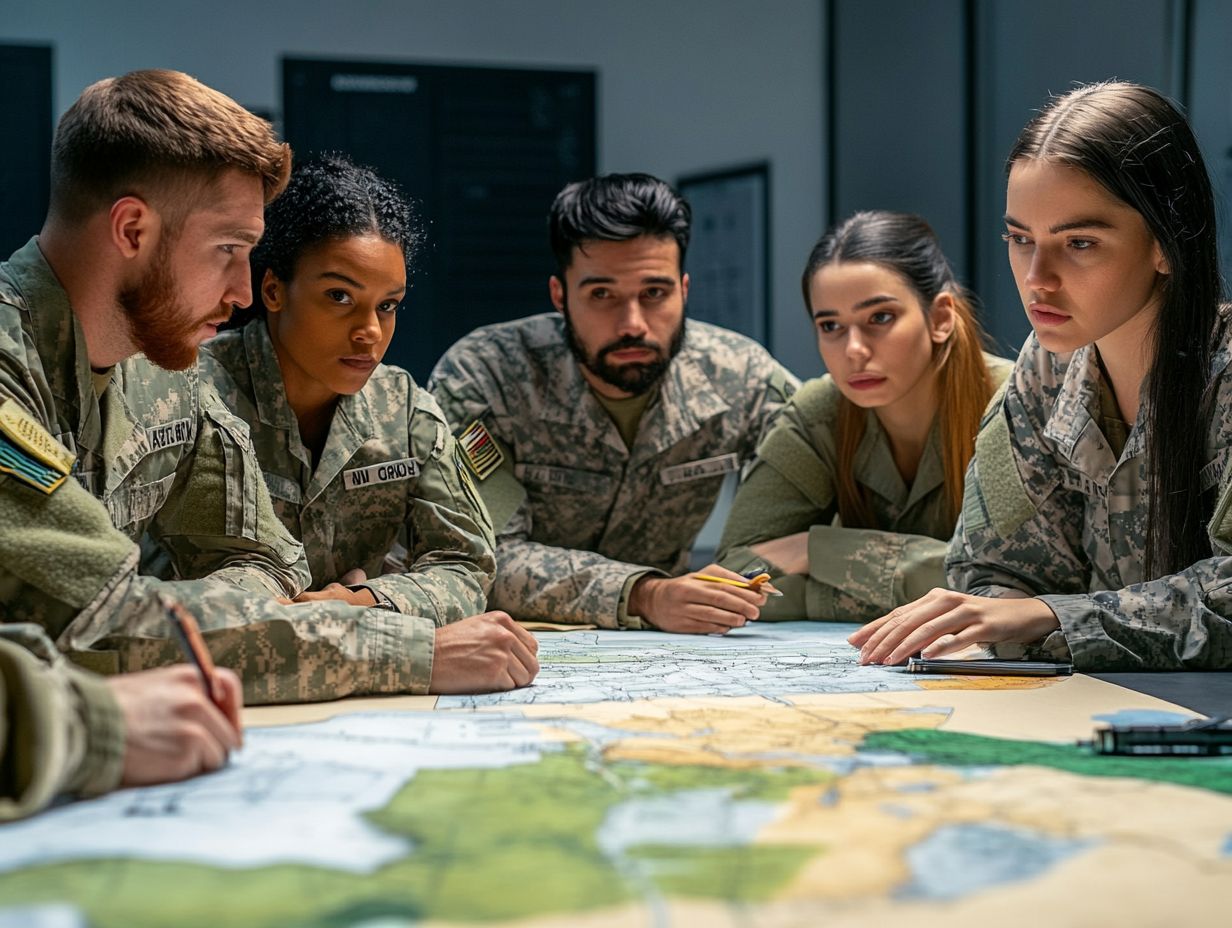
Effective approaches for cultural sensitivity in legal strategies involve understanding and respecting the diverse cultural factors that shape community standards and individual behaviors.
As a legal practitioner, you can enhance your practice by employing methods like community engagement. Consulting with local groups allows you to gain invaluable insights into their unique perspectives and values.
Participating in training programs focused on cultural competency will equip you with the skills needed to navigate complex interpersonal dynamics. Using tools like culturally responsive legal frameworks helps you adopt tailored approaches that honor the historical and societal contexts influencing your clients’ situations.
By integrating these strategies, you elevate your legal practice and foster trust and collaboration within the communities you serve.
The Future of Cultural Factors in Defense
The future of cultural factors in defense is on the brink of significant transformation. As cultural shifts continue to unfold, there s an urgent need to reevaluate existing legal doctrines and practices that pertain to these cultural variations.
Adapting to this evolving landscape is not just important it s essential for meaningful progress.
Anticipating and Adapting to Cultural Shifts
Anticipating and adapting to cultural shifts is crucial for lawyers, especially when addressing cultural factors in defense. It s important to ensure that your approach aligns with the evolving standards of the community.
You must remain attuned to societal dynamics and proactively understand how these shifts influence legal interpretations and case outcomes.
Engaging in continuous education is key. Consider attending seminars, participating in workshops, and interacting with diverse community groups.
Building relationships with cultural experts can offer invaluable insights that inform your legal strategies.
By fostering an environment of open communication and collaboration, you will enhance your responsiveness to community needs and strengthen your advocacy efforts. This ultimately paves the way for more equitable outcomes in legal proceedings.
Frequently Asked Questions
Here are some common questions about cultural factors in defense:
How do cultural factors influence defense strategies?
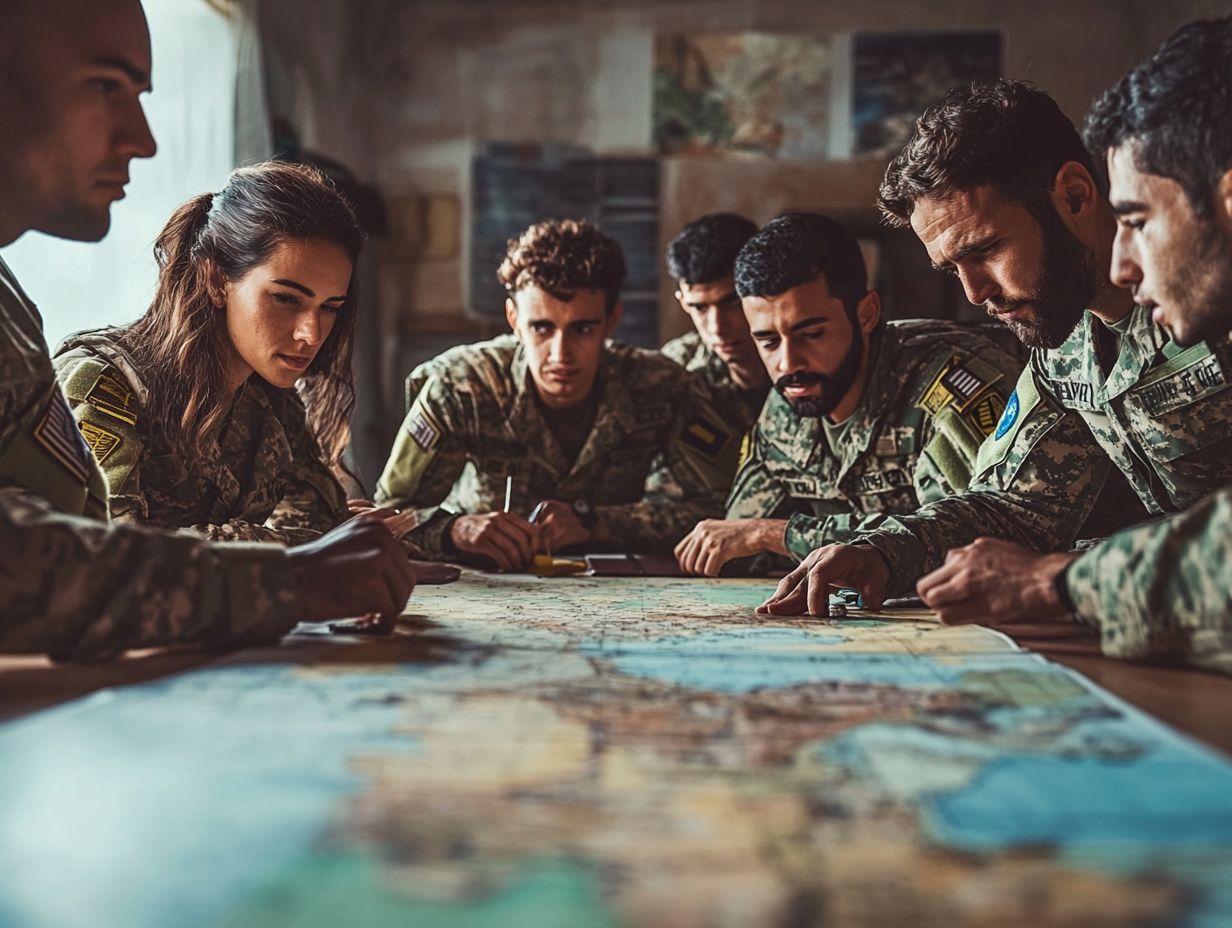
Cultural factors significantly impact defense strategies as they shape an individual or society’s perception of security, threat, and violence. The values, beliefs, and norms of a culture can influence the types of defense methods used and the level of aggression displayed.
What role do societal values and beliefs play in defense tactics?
Societal values and beliefs heavily influence defense tactics. They shape the moral code and attitudes towards violence. For example, a culture that values non-violent conflict resolution may prioritize diplomatic negotiations over military interventions.
How does a culture’s history and conflicts contribute to defense strategies?
A culture’s history and past conflicts often shape its defense strategies. For instance, a country that has experienced multiple invasions or wars may prioritize developing a strong military and defensive capabilities.
Are there any cultural factors that can hinder effective defense?
Yes, cultural factors such as a lack of trust in authority, high levels of individualism, or an aversion to violence can hinder the implementation of effective defense strategies. These factors can lead to conflicts within a society and weaken their ability to defend against external threats.
How do cultural differences between nations impact defense cooperation?
Cultural differences between nations can create challenges in defense cooperation. Different values, beliefs, and communication styles can affect the ability to work together effectively and may lead to misunderstandings or conflicts.
Can cultural factors affect a nation’s perception of defense spending?
Yes, cultural factors can influence a nation’s perception of defense spending. Some cultures may view a strong military and high defense budget as necessary for security, while others may see it as excessive or even aggressive. Cultural values and beliefs can impact public support for defense spending and influence government decisions.
This is an exciting time for cultural evolution in defense! To learn more or get involved, consider reaching out to local organizations or participating in community discussions.


